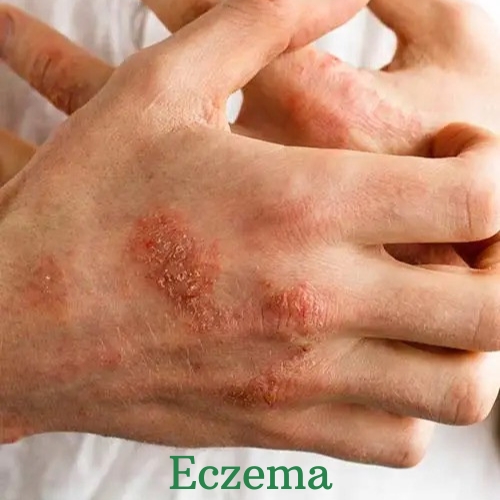Eczema is no stranger to stress, and the link between the two is as complex as it is frustrating. If you’ve ever found your skin flaring up during a tense time, you’re not alone. In this article, we’ll dive deep into the connection between stress and eczema, explore the triggers, and arm you with practical prevention tips to keep your skin calm and happy.
Understanding Eczema and Its Causes
What is Eczema?
Eczema, or atopic dermatitis, is a chronic skin condition that causes inflammation, redness, and intense itching. It’s like your skin’s way of throwing a tantrum when things aren’t quite right.
Common Triggers of Eczema
Eczema triggers vary from person to person but often include allergens, irritants, weather changes, and even certain foods. However, one significant and often overlooked culprit is stress.
The Connection Between Stress and Eczema
Stress doesn’t just mess with your mind—it also wreaks havoc on your skin. For many, stress eczema is a real and recurring issue, acting as a flare-up trigger during high-pressure times.
The Science Behind Stress Eczema
How Stress Impacts the Immune System
Stress activates your body’s fight-or-flight response, releasing hormones like cortisol. While cortisol is helpful in short bursts, prolonged stress weakens the immune system, making eczema flare-ups more likely.
Stress-Induced Hormonal Changes
Cortisol, the “stress hormone,” can cause inflammation in the body, including the skin. This inflammation aggravates eczema symptoms, turning small patches into full-blown flare-ups.
The Cycle of Stress and Itching
Here’s the kicker: stress can make you itch, and itching causes more stress. It’s a vicious cycle that feels like a hamster wheel for your skin—round and round it goes.
Key Triggers of Stress Eczema
Emotional Stress
Emotional stress from work, relationships, or financial troubles can directly contribute to flare-ups. Your skin often mirrors what’s happening inside.
Environmental Stressors
Pollution, weather changes, or even long hours in air-conditioned environments can stress out your skin, leading to stress eczema.
Physical Stress on the Skin
Harsh soaps, tight clothing, or excessive scratching can physically stress the skin, worsening eczema symptoms.
Symptoms of Stress Eczema
Recognizing Stress-Related Flare-Ups
Stress eczema often presents as red, inflamed patches that itch, especially during or after stressful periods.
Differentiating Stress Eczema from Other Types
While all eczema involves inflammation, stress eczema tends to have a clear trigger: heightened emotional or physical stress.
Prevention Strategies for Eczema
Managing Stress Levels
Relaxation Techniques
Deep breathing exercises, yoga, and aromatherapy can work wonders for calming both your mind and your skin.
Mindfulness and Meditation
Practicing mindfulness can help you stay present and reduce the stress that might otherwise trigger a flare-up.
Creating a Skin-Friendly Environment
Identifying Irritants
Avoid harsh soaps, fragrances, and materials that might irritate your skin further.
Staying Hydrated
Hydration isn’t just for your insides—keeping your skin moisturized can help maintain its barrier function.
Building Healthy Habits
Regular exercise, a balanced diet, and proper sleep can significantly reduce the chances of eczema flare-ups.
Treatment Options for Eczema
Over-the-Counter Solutions
Hydrocortisone creams and moisturizers can provide quick relief. Look for a fragrance-free cream to avoid further irritation.
Prescription Medications
For severe cases, dermatologists might prescribe topical steroids or immunosuppressants to calm the inflammation.
Natural Remedies
Oatmeal baths, aloe vera, and coconut oil can soothe irritated skin, offering relief from itching and redness.
When to Seek Professional Help
Signs You Need a Dermatologist
If your eczema isn’t responding to over-the-counter treatments or is significantly affecting your quality of life, it’s time to consult a dermatologist.
Exploring Advanced Treatments
Options like phototherapy or biologic drugs may be recommended for chronic or severe cases of eczema.
Living with Eczema
Building Resilience
Developing coping mechanisms, like journaling or seeking therapy, can help reduce stress and its impact on your skin.
Finding Support and Community
Connecting with others who understand what you’re going through can be incredibly validating and empowering.
Conclusion
Stress eczema is a frustrating yet manageable condition. By understanding its triggers and adopting proactive strategies, you can reduce flare-ups and live more comfortably. Remember, your skin is a reflection of your inner state, so taking care of your mental health is just as important as treating your eczema.
FAQs
- What is eczema, and how does it differ from other forms of eczema?
Eczema is triggered by emotional or physical stress, unlike other types, which may be caused by allergens or genetics. - Can eczema be cured permanently?
While there’s no permanent cure, managing stress and maintaining a consistent skincare routine can minimize flare-ups. - Are there specific foods that can trigger eczema?
Certain foods, like dairy or gluten, may aggravate eczema for some people, though triggers vary individually. - How quickly can stress cause an eczema flare-up?
Stress-related flare-ups can occur within hours or days, depending on the individual’s sensitivity. - What role do genetics play in eczema?
Genetics can predispose individuals to eczema, but stress often acts as the trigger that brings symptoms to the surface.






More Stories
The Joy of Giving: Helping Elderly People Find Happiness
The Role of Elderly Care Services in Preventing Elderly Loneliness
Gabantin 100 mg vs. Other Seizure Medications: Which Works Best?